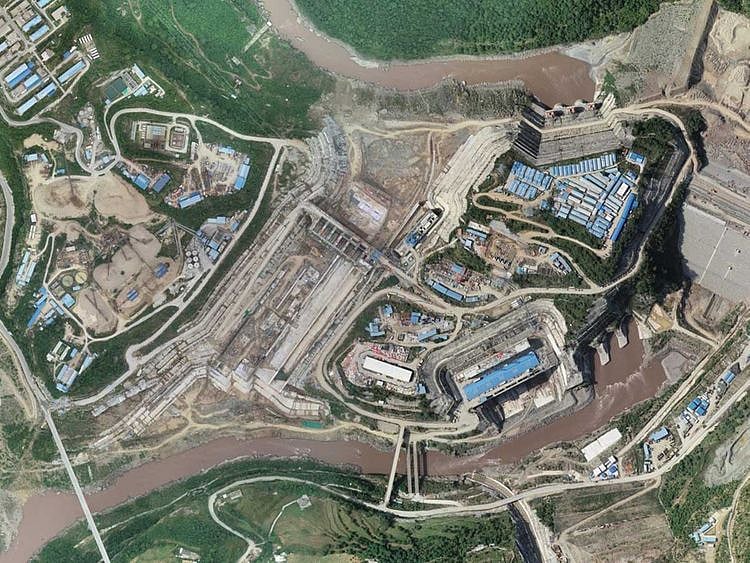Islamabad: The Karot Hydropower Project, the first hydroelectricity project under the China-Pakistan Economic Corridor (CPEC), is close to completion as it began storing water in its reservoir for future use.
Pakistani officials described the development as a “big milestone” as the hydropower project successfully closed the gates of diversion tunnels on Saturday to start reservoir impoundment, the accumulation of water in its reservoir. Around 95 per cent of the project has been completed. The four units of the station are expected to generate electricity in the first half of 2022.
Clean energy
The Karot Hydropower Project is located on the Jhelum River in northeastern Pakistan, some 65 kilometres from the capital Islamabad. It is the fourth of five cascade hydropower stations planned for the Jhelum River. The 720MW project will enable Pakistan to access cheaper and greener power, help resolve the power crisis while creating job opportunities.
Cost and investors
Built at an estimated cost of $1.7 billion, it is a landmark Belt and Road Initiative (BRI) project as it is the first to be funded by China’s $40 billion Silk Road Fund. The project is managed by Pakistan’s Karot Power Company and the major investment comes from China Three Gorges Corporation, which is among the world’s largest producers of hydroelectric power. The project has been developed on a build-own-operate-transfer (BOOT) basis.
Cheap electricity and jobs
Karot Power Company will run and maintain the project for 30 years at a tariff of 7.57 cents per unit after which it will be transferred to the Punjab government at a notional price of Rs1.00. The project provided over 4,000 jobs for the locals during the peak time of its construction. The project also expects “to reduce carbon dioxide emissions by 3.5 million tons per year” by tapping renewable energy.
Capacity
It has an installed power generation capacity of 720 megawatts with an average annual electricity output of 3,436GWh. It will provide clean, reliable and affordable electricity to seven million households. The electricity will be sold to the National Transmission and Despatch Company under a 30-year power-purchase agreement. The plant will be transferred to the provincial Punjab government after 30 years. During the construction period, it would pay $23 million in taxes to the Pakistan government.
Project details
It includes a 95.5-meter high dam, a surface powerhouse, four headrace tunnels, diversion tunnels, a spillway, reservoir storage of 164.50 million cubic metres and an approximately 5km long 500kV transmission interconnection to the national grid.
Sign up for the Daily Briefing
Get the latest news and updates straight to your inbox
Network Links
GN StoreDownload our app
© Al Nisr Publishing LLC 2026. All rights reserved.
